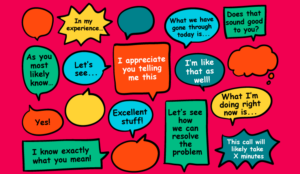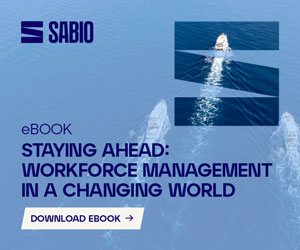Megan Haas of Interactions discusses conversational artificial intelligence (AI) and how it can benefit travelling customers.
As the weather heats up this time of year, vacation is the top thing on my mind and I start to book my summer travels. Whether a domestic beach destination or an international adventure, I make a list of everything I have to do.
Book flights? Check. Book a rental car? Check. Book a hotel? Check. With improved self-service, I find it easy to navigate through websites and channel options to get exactly what I want.
However, if I am put on hold or have to deal with a complication, it’s frustrating and I have to find the time to finish the task later in the day or on a different channel.
In my experience, the major problems with booking travel happen at the worst possible time. It’s not when I’m comfortably sitting in my house with my laptop and phone, but instead when I’m running through the airport trying to book another flight because my connection was just cancelled, or trying to contact my hotel last minute so I can book another night.
This is when the headaches start. Long wait times. On hold for hours when I don’t have a minute to spare. It’s during these urgent travel situations when I need customer care to perform at its best, and it’s often when it fails the most.
So Interactions decided to take a look at customer preferences and tendencies when booking and managing travel, especially in urgent situations, and how AI and self-service can best support customers when these manic situations happen.
The company conducted a study with more than 1,700 participants –both business and leisure travellers – and here are some key findings:
1. Voice Rules in Urgent Matters (and even in non-urgent matters)
Love it or hate it, voice is still king. And when is comes to making direct contact with a travel and hospitality company, phone is still the preferred method.
In fact, 59% of respondents who had contacted an airline, hotel, rental car agency, or cruise line in the past year did so through the phone, in both urgent and non-urgent situations.
Also, when it came to urgent matters, over 50% of both leisure and business travellers chose phone as their preferred method of contact.
If your company deals with any type of urgent travel situations, it’s vital to have quick, efficient service through the phone. Sure, chatbots and text channels may have a lot of hype right now, but if they cannot deliver or be accessed when customers need them most, then what’s the point?
2. Self-Service Is Essential
In an urgent matter, time is of the essence. Speaking with an agent can be helpful, but if people can use self-service and get the same quality of service more quickly and without a long hold time, they are on board.
Our survey showed that travellers don’t mind using technologies like a virtual care assistant to take care of urgent matters like rebooking a flight or hotel due to weather cancellations.
71% of business travellers and 67% of leisure travellers said they would use self-service in this type of situation.
Another trend that we found is that travellers don’t like to repeat themselves or be transferred multiple times (no surprise there). This means there is a big opportunity for travel and hospitality companies to implement self-service for the entire transaction, or to have self-service collect the information needed so agents can quickly help travellers and efficiently process their requests.
Using an accurate and intelligent virtual assistant is vital if a travel company is implementing self-service, because otherwise you are just wasting your customers’ time in often frantic situations by putting them on hold or sending them to the wrong agent.
3. Keep the Experience Positive
When it comes to urgent or unexpected travel situations, maintaining a good customer experience is essential.
Frustrating a customer when they are already overwhelmed will create a bad experience, and most likely lead to them ranting about your company on social media and possibly never using your services again.
The top characteristic of poor customer service in travel is that no one wants to sound like a broken record. 36% say that having to repeat an enquiry and information multiple times to different representatives is the ultimate turn-off.
Being transferred multiple times (25%), unknowledgeable agents (20%), and long wait times (19%) also topped the list.
To prevent this from happening, companies must consider if their self-service truly understands their customers, with technologies like conversational AI that use automatic speech recognition (ASR) and natural language processing and the help of humans when needed.
How Can Conversational AI Help?
Incorporating conversational AI into your contact centre environment allows for scalable, productive, and efficient self-service interactions that will leave your customers happy and their problems solved.
Especially in urgent travel situations, it’s important to have an automation option that can scale for an unexpected increase in calls, like flights being cancelled due to a storm.
Also, it’s an important aspect for self-service to provide the same, if not better, customer care in terms of productivity so that travellers have one less thing to worry about.
Author: Guest Author
Published On: 24th May 2019 - Last modified: 28th May 2019
Read more about - Guest Blogs, Interactions



































